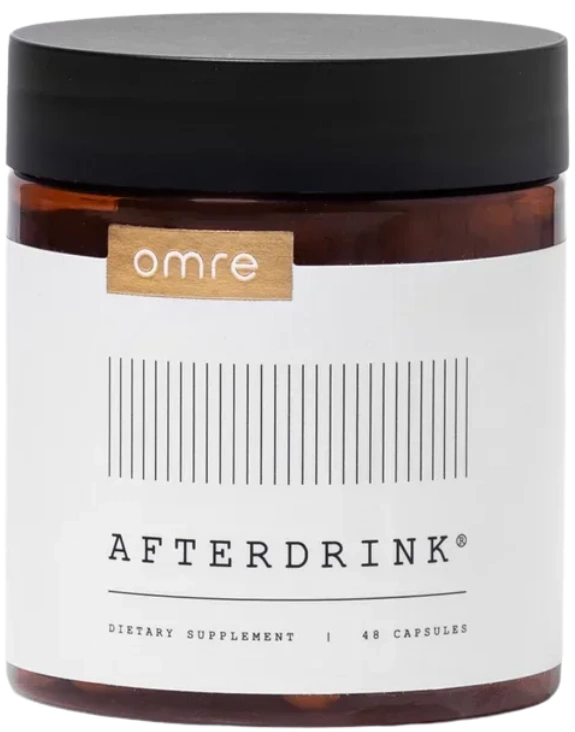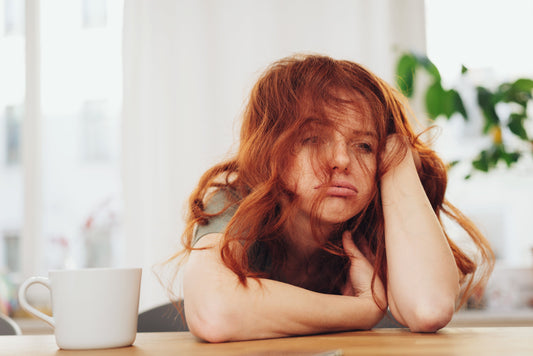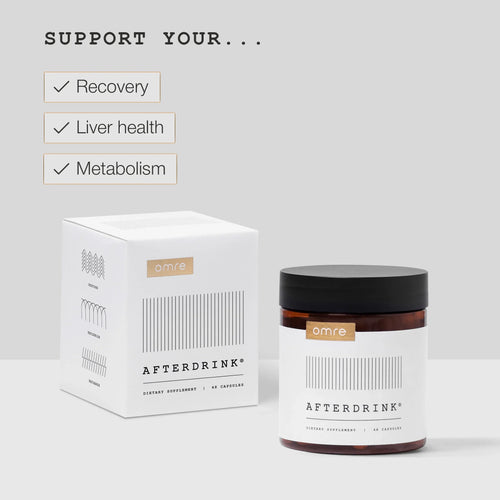Table of Contents
- What is a 2-Day Hangover?
- Can a Hangover Really Last 2 Days?
- Why Am I Still Hungover After 2 Days?
- 2-Day Hangover Symptoms to Watch For
- What Makes Hangovers Last So Long?
- Still Hungover 2 Days Later? Here’s What to Do
- What Not to Do on Day 2 of a Hangover
- Natural Remedies That Might Help
- How to Prevent a 2-Day Hangover Next Time
- When to Worry
- Final Words
- FAQs
A 2-day hangover is real and can happen when your body takes longer to recover from alcohol. It’s usually caused by things like dehydration, poor sleep, your body’s slow breakdown of alcohol, or simply drinking more than your system can handle. Some people are more sensitive than others, and age often makes it worse.
In this article, we’ll explain why some hangovers drag into day two, what symptoms to watch for, how to recover faster, and simple ways to avoid it happening again.
What is a 2-Day Hangover?
-v1748115155607.webp) A 2-day hangover means you're still feeling the effects of alcohol long after your night out, well into the next day, or even the day after that. It’s not just in your head. Fatigue, brain fog, nausea, and hangover anxiety can all linger longer than expected.
A 2-day hangover means you're still feeling the effects of alcohol long after your night out, well into the next day, or even the day after that. It’s not just in your head. Fatigue, brain fog, nausea, and hangover anxiety can all linger longer than expected.
This happens when your body is still dealing with the aftermath of alcohol. Think of it like your system got overloaded and hasn’t caught up yet. For some, especially as they get older, a hangover doesn’t just “clear up” after a nap or a greasy breakfast.
Some people bounce back quickly, but others may find themselves dragging through the second day with headaches, irritability, and zero motivation.
If that’s you, you’re not alone, and there’s usually a reason behind it.
Can a Hangover Really Last 2 Days?
A hangover can last 2 days. While it’s not the norm for everyone, it becomes more common with age, dehydration, lack of sleep, and heavier drinking sessions.
If you’ve been out drinking more than usual, mixing drinks, or skipped food and water, your body might take longer to recover. Also, alcohol can throw off your sleep and mess with your blood sugar, which makes recovery even slower.
It’s also worth mentioning that alcohol affects everyone differently. What might be a mild hangover for one person can turn into a two-day recovery for someone else, especially if they already have low energy or are sensitive to alcohol.
Why Am I Still Hungover After 2 Days?
Still feeling off two days later? It’s probably because your body is still trying to recover from the shock that alcohol caused. A hangover isn’t just a headache; it’s dehydration, inflammation, poor sleep, and your liver working overtime to flush out toxins.
Here are some common reasons your hangover might be stretching into a second day:
Dehydration: Alcohol dries your body out, which leads to headaches, tiredness, and dizziness that can stick around.
Lack of sleep: Even if you slept for hours, alcohol messes with deep sleep. Poor rest equals longer recovery.
Alcohol type: Drinks with more “congeners” (like whiskey or red wine) can make hangovers worse and longer.
Medications: Some medications slow down how your body breaks down alcohol.
Mental health: Anxiety and low mood can feel worse after drinking and keep lingering.
Getting older: As we age, our body isn’t as fast at repairing itself or processing alcohol.
2-Day Hangover Symptoms to Watch For
If you're on day two and still not feeling like yourself, you're probably dealing with some of these:
Headache that won’t go away
Brain fog or trouble focusing
Nausea or stomach discomfort
Anxiety or low mood
Poor sleep and feeling unrested
Muscle aches or general fatigue
Light or sound sensitivity
Dehydration (dry mouth, dizziness, dark urine)
What Makes Hangovers Last So Long?
A hangover that lasts two days usually means your body’s still trying to recover from all the damage alcohol did. Your liver is processing toxins, your sleep was off, and your body is low on the stuff it needs: water, electrolytes, vitamins, and rest.
One big reason is acetaldehyde, a toxic by-product created as your liver breaks down alcohol. It lingers in your system longer if you drink a lot, and it causes inflammation and nausea.
Until it’s cleared out, you might still feel sick.
Another factor is how much your body was pushed past its limits. If you didn’t eat before drinking, skipped water, or stayed up late, your body has a bigger mess to clean up.
And if you're drinking multiple nights in a row, the effects can build up fast.
Finally, your personal tolerance matters. Some people are just more sensitive to alcohol or have underlying conditions that make hangovers worse.
What feels like a fun night for one person can mean a two-day crash for someone else.
Still Hungover 2 Days Later? Here’s What to Do
-v1748115221345.webp) If you're still feeling drained, foggy, or just off two days after drinking, don’t panic. Your body is still in recovery mode. Here are a few things that can gently speed things up and help you start feeling like yourself again.
If you're still feeling drained, foggy, or just off two days after drinking, don’t panic. Your body is still in recovery mode. Here are a few things that can gently speed things up and help you start feeling like yourself again.
Rehydrate Properly (Electrolytes > Just Water)
Plain water is good, but it won’t bring back the electrolytes your body lost while drinking. Try drinks like coconut water, sports drinks, or oral rehydration solutions like Pedialyte.
These help restore sodium, potassium, and magnesium, which are important for energy, focus, and muscle function.
A study published in the Journal of Clinical Medicine found that alcohol causes significant electrolyte imbalances, which can contribute to hangover symptoms like fatigue and weakness (1).
Rehydrating with electrolytes instead of just water can help you recover faster.
Eat Well (Bananas, Oatmeal, Broth)
After heavy drinking, your blood sugar tends to crash. Eating balanced, easy-to-digest foods helps bring your energy levels back up.
Bananas: Great for potassium and easy on the stomach.
Oatmeal: Provides slow-release carbs to stabilize blood sugar.
Broth or soup: Hydrating and full of minerals that support recovery.
Some studies have shown that complex carbohydrates and potassium-rich foods can help ease fatigue and brain fog that come with alcohol withdrawal and nutrient loss (2).
Sleep (Reset Your Body)
Even if you “slept it off,” alcohol disrupts REM sleep, which is the part of sleep that helps you feel rested. If you’re still tired, give yourself permission to nap or sleep in early the next night.
Poor sleep is one of the main reasons hangovers last longer than expected.
A study showed that even moderate drinking can lead to fragmented sleep, which slows down your recovery the next day (3).
Try Light Movement (Gentle Walk, Yoga)
Don’t push yourself too hard, but a short walk or light stretching can actually help. Movement gets your blood flowing and encourages your body to process leftover toxins more effectively.
A bit of light exercise can also lift your mood. According to research from Harvard Medical School, even mild physical activity helps ease anxiety and boosts endorphins, which can be just what you need on a rough hangover day (4).
Take Vitamins (B-Complex, Magnesium, Potassium)
Alcohol drains your body of essential nutrients, especially B vitamins and magnesium. These are important for brain function, energy production, and muscle support.
Vitamin B1 (thiamine) helps with mental clarity and nerve function.
Magnesium supports muscle recovery and reduces headaches.
Potassium helps regulate hydration and supports heart health.
Taking a quality multivitamin or B-complex supplement can give your system a helpful nudge as you recover.
What About IV Drip Treatments?
IV therapy for hangovers has become trendy, especially in big cities. Clinics claim it helps by quickly replacing fluids, electrolytes, and vitamins.
While this might ease dehydration, it doesn’t do much for other symptoms like headache, nausea, or brain fog.
There’s not much solid research proving IV drips are more effective than rest, food, and oral hydration. They can also be pricey and come with some risks, just like any injection.
For most people, a good meal, water with electrolytes, and time are just as effective, without the needle.
What Not to Do on Day 2 of a Hangover
It might be tempting to do things that feel comforting in the moment but actually make your hangover worse. Here’s what to avoid.
Don’t Drink More Alcohol
“Hair of the dog” is a common phrase, but it’s not good advice. Drinking more alcohol just delays your recovery.
It might mask symptoms temporarily, but it doesn’t solve the underlying problem. Your body needs a break, not more work.
Avoid Caffeine Overload
A little coffee is fine, but too much can worsen dehydration and anxiety, especially if you're already feeling shaky. Try herbal teas or stick with water and electrolytes instead.
Skip Heavy, Greasy Meals
It’s common to crave junk food during a hangover, but heavy or greasy foods can upset your stomach even more.
Instead, eat light, nutrient-rich meals that are easier to digest and actually support recovery.
Don’t Stay Up Late Again
If your sleep cycle is off from the weekend, try not to make it worse. Turn off screens early, dim the lights, and go to bed at a reasonable hour to help your body reset.
Natural Remedies That Might Help
If you're looking for gentle, at-home ways to ease hangover symptoms, here are a few that some people find helpful. While not all are backed by strong research, many are safe to try and might give you a bit of relief:
Ginger tea: Calms nausea and helps digestion. Ginger has been used for centuries to ease stomach discomfort.
Peppermint oil: Can be applied to your temples for headache relief or used in tea to ease nausea.
Lemon water: Supports digestion and may help the liver process alcohol byproducts.
Honey on toast: Offers natural sugars and fast energy to help with blood sugar crashes.
B-complex vitamins: Support your nervous system and energy levels.
Milk thistle: A herbal supplement that may help the liver recover, though more research is still needed.
How to Prevent a 2-Day Hangover Next Time
The best way to avoid feeling awful for two straight days is to be a little more mindful while drinking. These small steps can make a big difference the next morning—and the one after that.
Drink water between alcoholic drinks – It helps keep you hydrated and slows down how much you drink overall. Try a glass of water after every alcoholic drink.
Eat before and during drinking – A good meal helps slow alcohol absorption and keeps your blood sugar steady. Fats, protein, and carbs all help.
Know your limits – If certain drinks or amounts usually make you feel worse, it’s worth listening to your body. Everyone’s tolerance is different.
Avoid darker alcohols – Drinks like whiskey, rum, and red wine contain more congeners, which can lead to longer hangovers.
Take a recovery supplement – Some people benefit from vitamins or herbal formulas before bed. These can help replenish nutrients and support liver function.
Go to bed early – Sleep is when your body does most of the repair work. A decent night's rest can help stop hangovers from stretching into day two.
When to Worry
While a 2-day hangover is uncomfortable, it usually isn’t dangerous. But there are times when you should take things seriously.
If you're still throwing up, can’t keep fluids down, or feel dizzy when standing, you may be dealing with severe dehydration. This can lead to complications and should be checked out by a doctor.
Also, if your symptoms feel worse than usual, like chest pain, confusion, or extreme weakness, it’s best not to assume it’s just a hangover.
You could be dealing with something else entirely, like food poisoning or an underlying medical issue. When in doubt, it’s always okay to get a second opinion.
Lastly, if you’re frequently experiencing 2-day hangovers or using alcohol to cope with stress or anxiety, it might be time to reflect on your relationship with drinking. Support is out there, and you're not alone.
Final Words
A hangover that sticks around for two days is rough, but it’s not unusual. Your body needs more time to bounce back when it's dealing with dehydration, poor sleep, and alcohol byproducts like acetaldehyde.
Staying hydrated, eating well, resting, and avoiding certain habits can help you recover faster and prevent it next time.
If you're tired of waking up foggy and wiped out, AFTERDRINK® might be worth a try.
It’s a doctor-developed supplement packed with antioxidants, B vitamins, and herbal extracts like DHM and milk thistle to help your body recover naturally. Think of it as support from the inside out—so you can wake up clear-headed and ready for the day.
 Check availability now and see how AFTERDRINK® can help you feel better, faster.
Check availability now and see how AFTERDRINK® can help you feel better, faster.
FAQs
Can hangovers last 2 days?
Yes, hangovers can last up to 48 hours, especially if you drank heavily, didn’t sleep well, or didn’t stay hydrated. It’s not common for everyone, but it definitely happens.
Is it normal to be hungover for 2 days?
It’s not unusual, especially as you get older or if your body takes longer to bounce back. If you’ve been pushing your limits with alcohol, a two-day recovery is your body’s way of asking for rest and care.
Why do my hangovers last so long?
Everyone processes alcohol differently. Long hangovers can be due to poor sleep, dehydration, nutrient loss, or drinking drinks with high congeners like whiskey or red wine. Medications and stress can also make symptoms worse.
Can you have a hangover 2 days later?
Some symptoms like fatigue, brain fog, or anxiety can still linger on day two, even if the headache and nausea are gone. It’s your body still working to get back to balance.




